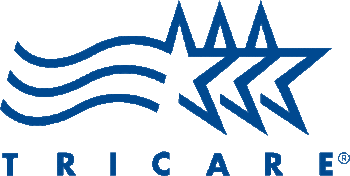PTSD Resources and VA Benefits

According to the Department of Veterans Affairs, PTSD develops after you go through or see a life-threatening event. It’s normal to have stress reactions to these types of events, and most people start to feel better after a few weeks. If symptoms last longer than a month and are causing problems in your life, it could be PTSD.”
Who is at risk for developing post-traumatic stress disorder? VA.gov notes, “Anyone can develop PTSD at any age. Some factors can increase the chance that someone will have PTSD, many of which are not under that person’s control. For example, having a very intense or long-lasting traumatic event or getting injured during the event can make it more likely that a person will develop PTSD.”
PTSD is “more common” after certain types of trauma, including sexual assault and combat.
What Benefits Does the VA Provide For Those with PTSD?
According to the National Center for PTSD, as many as 20 out of 100 veterans who served in OIF or OEF have PTSD in any given year. The rate was listed as 12% for those who served in the Gulf War, and 30% of Vietnam veterans have had PTSD during their lifetime. MST or Military Sexual Trauma is another cause of PTSD within the military. PTSD can also occur in children and teens.
What are the symptoms of PTSD?
PTSD is a serious mental health condition. According to the Mayo Clinic, PTSD symptoms include:
- Intrusive memories, such as flashbacks and upsetting dreams.
- Avoidance, such as trying to avoid talking or thinking about the event.
- Negative changes in thinking and mood, such as hopelessness about the future.
- Changes in physical and emotional reactions, such as being easily startled or having trouble sleeping.
What services does the VA provide for those with PTSD?
The VA has over 200 PTSD treatment programs. They offer:
- 1-to-1 mental health assessment and testing to figure out if you have PTSD.
- Medicine that is proven to work for treating PTSD.
- 1-to-1 psychotherapy or also called talk therapy. This would include proven methods like CPT (Cognitive Processing Therapy).
- 1-to-1 family therapy.
- Group therapy for special needs, like anger or stress management, or combat support
- Group therapy for veterans who served in certain combat zones or those who have been through similar traumas.
- PTSD specialists that provide regular outpatient care to veterans with PTSD in each VA medical center across the U.S.
- Special residential or inpatient care programs found in each region of the U.S. that can help veterans with severe PTSD symptoms who have trouble doing normal daily activities.
- Providers that offer added PTSD care in some of the large community-based outpatient clinics.
You can learn more about VA PTSD options for veterans at the VA official site.
How do you access PTSD treatment through the VA?
After you have applied for VA health services, if you have a VA primary care provider, you should start by talking to them about your concerns. They can help you figure out if you do have PTSD, as well as help you find treatment and support.
If you don’t have a VA primary care provider or have never been seen in a VA hospital, call the information hotline at 800-827-1000 or contact your local VA medical center, or contact a VA PTSD program near you.
If you don’t have VA health benefits, you might still be able to get the care that you need. Those who have served in a combat zone can get free private counseling, alcohol and drug assessment, and other support at a community Vet Center. There are 300 of them.
They also have contact information for those who are homeless or at risk of becoming homeless.
Can you receive disability compensation if you have PTSD linked to your military service?
Yes, if you have symptoms of PTSD and suffered a serious injury, personal trauma, sexual trauma, or were threatened with injury, sexual assault, or death while serving in the military, you may qualify. You can find out more information on the VA disability compensation for PTSD page.
PTSD Resources
- The Understanding PTSD and PTSD Treatment booklet
- National Center for PTSD
- Find a PTSD Coach Online
- Military One Source’s PTSD and Traumatic Brain Injury page
- PTSD Foundation of America
- National Suicide Prevention Lifeline
As a veteran, if you suspect you have PTSD, start the process of seeking help. There are resources to help you find treatment and support you as you try to heal.
RELATED:
- PTSD Awareness Day is June 27th
- Dogs and Vets: Helping Veterans with PTSD
- Mental Health and Resilience Resources For Veterans
- Health and Wellness Military Discounts
- “Give an Hour” Donates Time for Veterans, Families Mental Health
About the author
Editor-in-Chief Joe Wallace is a 13-year veteran of the United States Air Force and a former reporter/editor for Air Force Television News and the Pentagon Channel. His freelance work includes contract work for Motorola, VALoans.com, and Credit Karma. He is co-founder of Dim Art House in Springfield, Illinois, and spends his non-writing time as an abstract painter, independent publisher, and occasional filmmaker.


